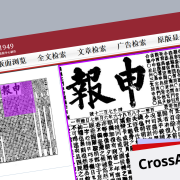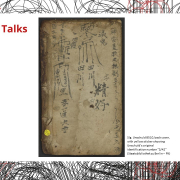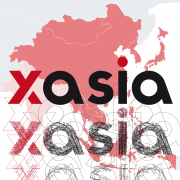CrossAsia Talks: Sarah Panzer 04.09.2025
(See English below)
Wir laden Sie herzlich zum ersten japanologischen CrossAsia Talk nach der Sommerpause ein: Am 4. September 2025 ab 18 Uhr (Berliner Zeit) wird Frau Prof. Sarah Panzer (Missouri State University) Einblicke in ihre Forschungsarbeit “Documenting the Lives of Germany’s ‘Forgotten’ Prisoners of War (POWs): Photographs in the Bandō-Sammlung” geben. Die Vortragende war im Frühling diesen Jahres im Rahmen des Stipendienprogramms der Stiftung Preußischer Kulturbesitz an der Staatsbibliothek in der Ostasienabteilung zu Gast und hat sich intensiv mit der Bandō-Sammlung beschäftigt.
On 7 November, 1914 the German garrison at Tsingtao (Qingdao), following a brief siege, surrendered to Japanese and British colonial troops. The German servicemen captured at Tsingtao were subsequently interned in Japan for the duration of the First World War. After early temporary arrangements—including barracks dating back to the Russo-Japanese War—proved inadequate, a series of POW camps were constructed across Japan. These camps became a kind of wartime ‘Ersatz Deutschland’ for their occupants, with multiple musical and theatrical ensembles organized within the various camps, as well as teams and training groups for popular sports and leisure activities. The differences between the camps notwithstanding, all variously functioned as sites where German identity was translated, represented, and negotiated within the context of extended internment. This fragile connection back to Germany became all the more important as the POWs began to suspect that their existence—to say nothing of their personal sacrifice as prisoners—had been forgotten.
Like their counterparts in Europe, some of the men interned in Japan during the First World War had access to private cameras, which they either brought with them from China or acquired in Japan. They used their cameras to document life in the camps, as well as to capture images of Japan and the Japanese. The photos produced within the camps, whether as discrete albums or as individual snapshots, provide insight into how POWs made sense of their experience in Japan and their ambivalent position as, on the one hand, emissaries of German Kultur, and, on the other, prisoners subject to the authority of the Japanese Empire. Drawing on the work of historians such as Maiken Umbach, who has argued that photographs are often more “usefully thought of as performative props than as documents of historical reality,” in this presentation I interrogate the photos and photo albums created by the German POWs and archived within the Bandō-Sammlung as a window into their understanding of themselves and their relationship to Germany and to Japan.
Die Vortragssprache ist Englisch. Bei Fragen kontaktieren Sie uns unter: ostasienabt@sbb.spk-berlin.de.
Der Vortrag wird darüber hinaus via Webex gestreamt und aufgezeichnet*. Sie können am Vortrag über Ihren Browser ohne Installation einer Software teilnehmen. Klicken Sie dazu unten auf „Zum Vortrag“, folgen dem Link „Über Browser teilnehmen“ und geben Ihren Namen ein.
Alle bislang angekündigten Vorträge finden Sie hier. Die weiteren Termine kündigen wir in unserem Blog und auf unserem X-Account, Mastodon und BlueSky an.
—
We cordially invite you to attend the first japanological CrossAsia Talk after the summer break: On 4 September 2025 from 6 pm (Berlin time), Prof. Sarah Panzer (Missouri State University) will give insights into her research work ‘Documenting the Lives of Germany’s “Forgotten” Prisoners of War (POWs): Photographs in the Bandō Collection’. The lecturer was a guest at the State Library in the East Asia Department in spring 2025 as part of the grant programme of the Stiftung Preußischer Kulturbesitz and worked intensively on the Bandō Collection.
On 7 November, 1914 the German garrison at Tsingtao (Qingdao), following a brief siege, surrendered to Japanese and British colonial troops. The German servicemen captured at Tsingtao were subsequently interned in Japan for the duration of the First World War. After early temporary arrangements—including barracks dating back to the Russo-Japanese War—proved inadequate, a series of POW camps were constructed across Japan. These camps became a kind of wartime ‘Ersatz Deutschland’ for their occupants, with multiple musical and theatrical ensembles organized within the various camps, as well as teams and training groups for popular sports and leisure activities. The differences between the camps notwithstanding, all variously functioned as sites where German identity was translated, represented, and negotiated within the context of extended internment. This fragile connection back to Germany became all the more important as the POWs began to suspect that their existence—to say nothing of their personal sacrifice as prisoners—had been forgotten.
Like their counterparts in Europe, some of the men interned in Japan during the First World War had access to private cameras, which they either brought with them from China or acquired in Japan. They used their cameras to document life in the camps, as well as to capture images of Japan and the Japanese. The photos produced within the camps, whether as discrete albums or as individual snapshots, provide insight into how POWs made sense of their experience in Japan and their ambivalent position as, on the one hand, emissaries of German Kultur, and, on the other, prisoners subject to the authority of the Japanese Empire. Drawing on the work of historians such as Maiken Umbach, who has argued that photographs are often more “usefully thought of as performative props than as documents of historical reality,” in this presentation I interrogate the photos and photo albums created by the German POWs and archived within the Bandō-Sammlung as a window into their understanding of themselves and their relationship to Germany and to Japan.
The lecture will be held in English. If you have any questions, please contact us: ostasienabt@sbb.spk-berlin.de.
The lecture will also be streamed and recorded via Webex*. You can take part in the lecture using your browser without having to install a special software. Please click on the respective button “To the lecture” below, follow the link “join via browser” (“über Browser teilnehmen”), and enter your name.
You can find all previously announced lectures here. We will announce further dates in our blog and on X, Mastodon and BlueSky.

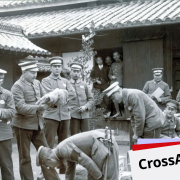 Staatsbibliothek zu Berlin – PK, Bandō-Sammlung, Depositum des Deutschen Instituts für Japanstudien, Signatur H 52
Staatsbibliothek zu Berlin – PK, Bandō-Sammlung, Depositum des Deutschen Instituts für Japanstudien, Signatur H 52
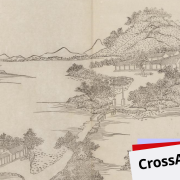 SBB-PK
SBB-PK
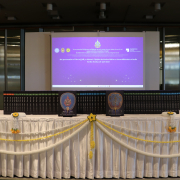 SBB-PK
SBB-PK
